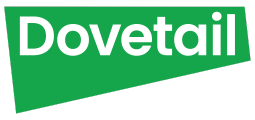Summer’s upon us and I’m sure that many of us feel like we’ve never needed our holidays more. But there’s always loads to do before we can relax, including creating an advisory board.
One of the big pre-holiday questions is: do you try and squeeze in as much as you can before you go away, or do you leave it for when you get back?
Whatever option you choose, you need to be aware of project lead times.
In this post, I’m going to cover expectations around planning advisory boards, and the amount of time it takes to get it right.
Plan Early
There are few better ways to understand a disease area and the needs of healthcare professionals and patients than by holding an ad board.
But if it’s not carefully planned, you could end up failing to get the insights you need, or worse, facing a regulatory complaint.
So, rule number one is, start planning early!
Be clear about your objectives.
What is it that you want to find out?
Does it need to be through an ad board? If you can find the answer from existing data or by running a market research survey, then do so.
You’ll save yourself a lot of effort and resources.
More importantly, a genuine need for holding an ad board must be clearly identified and documented to comply with the ABPI Code of Practice.
If your question has already been addressed in published consensus guidelines, for instance, you need to review your plans.
Do you need an agency to plan an advisory board?
OK, let’s be honest about this.
You probably could do it yourself, but have you got a spare 120 hours in your calendar, on top of your day job? And if you’ve never done it before, you’ll need even more time.
An experienced agency will advise you on how to implement your strategy and help you build bridges with your key opinion leaders.
This frees you up to simply listen to their advice and insights in the meeting itself.
How much lead time should you plan?
At Dovetail, we have considerable experience in delivering ad boards.
We always say the ideal minimum is 12 weeks from start to finish.
This gives time for the cross-functional team to get clear and aligned on objectives and processes.
It gives medical and legal signatories plenty of warning that an ad board’s coming up, so they can understand what you’re trying to achieve and avoid a stressful sign off rush at the last minute.
Sign off problems are one of the most common reasons for delays in planning an ad board. Involve the key medical and legal signatories as early as you can. Everyone will thank you for it.
Giving your advisors plenty of notice shows that you respect their time and appreciate they have other commitments.
If NHS clinicians need to cancel a clinic, they must give at least six weeks’ notice, sometimes eight.
Of course, we don’t live in an ideal world!
My team has successfully delivered engaging ad boards that nailed our clients’ objectives in less than 12 weeks.
And there’s no doubt that virtual meetings can be arranged at shorter notice than face to face, but if you don’t have to rush things, then don’t.
Your company’s investing significant resources and you need to make sure you get the outcomes you’re looking for.
How many advisors should I invite, and how do I choose them?
Numbers are important.
You need to get the balance right so that you have enough people to give a broad range of views.
For compliance reasons, you must have few enough people so that every opinion can be heard.
Who you choose depends on your objectives.
The brains in the room you need to advise you on implementing new guidelines may be different from the ones you select to help you understand complex research findings.
You also need to be mindful of not using the same clinicians repeatedly, or of falling into the disguised promotion trap.
Again, being crystal clear about the purpose of the meeting will help you to keep your medical director out of trouble.
What else do I need to think about?
Our approach is always to think about value for the delegates too.
We consider how we can make best use of their time, and give them an engaging experience, be it online or in person.
One important aspect is the make-up of the whole group – like a dinner party host planning for the right guests sit next to each other to bring the best out in conversation, we’re mindful of how attendees will work together and learn from one another as they share their insights.
One of the main reasons senior clinicians attend pharma ad boards is to network and have interesting conversations with colleagues.
Selecting the chair plays a vital role. If we get this right, then the rest of the attendees are more likely to accept the invitation.
Ideally, the meeting will feel like a logical and satisfying conversation.
The weeks of careful planning will be evident in how smoothly it runs, and how well the aims are met, not just for the sponsoring company but for everyone.
Dovetail would love to help you nail your next ad board.
We’re now open to discussions for work in late October 2021 onwards.
Get in touch to start the conversation before you go on holiday or after you come back.
Either way, we’d love to hear from you!
